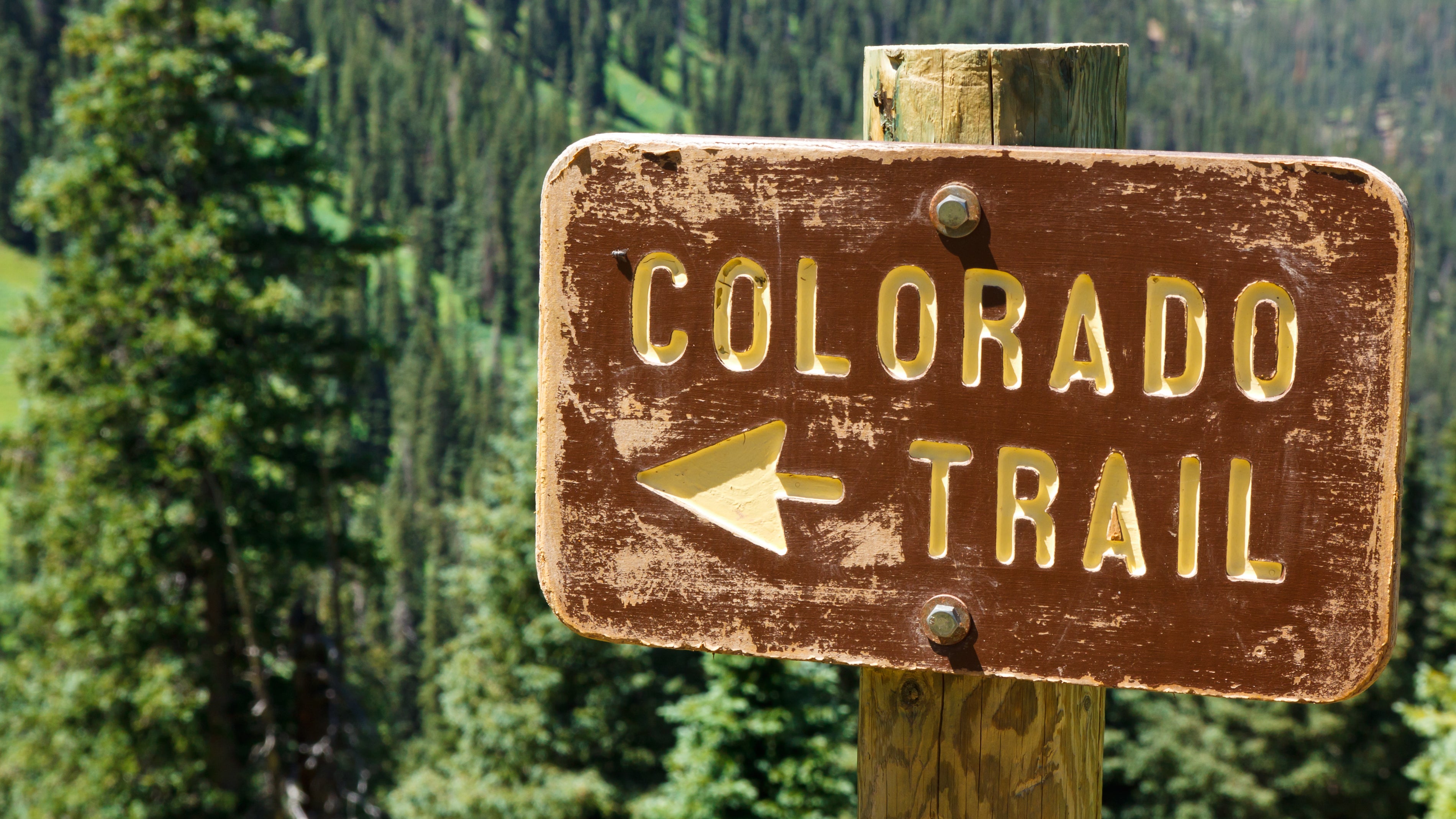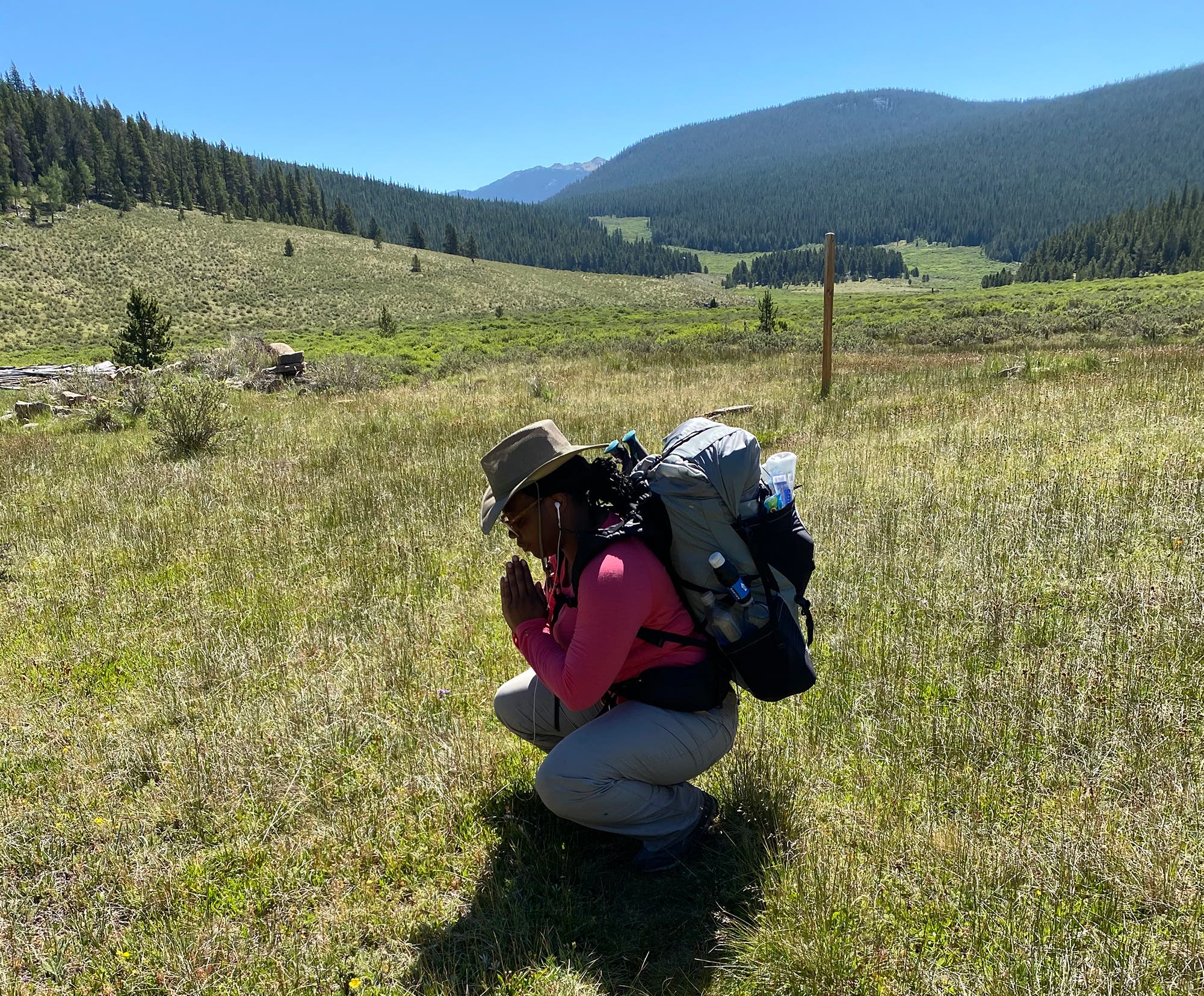Packing for a Pandemic Thru-Hike

'Patrick Poendl'
Editor’s Note: From now until mid-August, we’ll be publishing weekly dispatches from Patricia Cameron as she thru-hikes the 486-mile Colorado Trail. A writer for BACKPACKER and SNEWS, Patricia is the founder of Blackpackers, a non-profit dedicated to reducing hiking’s racial gap by offering low- and no-cost outdoor experiences to people who are Black, Indigenous, and people of color.

I work at a small gear and bike shop in Colorado Springs, and by nature of the proximity in which we operate, along with our shared ideals, we are a fairly close-knit group. Mountain Equipment Recyclers is unique in that 100% of our net profits are returned to various local charities. Everyone there has their thing: climbing, backcountry skiing, cycling, and so on. When I started planning my Colorado Trail hike, back in the pre-pandemic Before Days, I had a lot of experts around to help and inspire me.
My plan for the CT was always ambitious: I’d hike the entire path, starting in Denver and ending in Durango, and have a series of sponsors provide gear for participants from Blackpackers who would join me for different sections along the way. The idea was to take participants who never backpacked before and provide them with both gear and knowledge they could use on their own adventures.
Hikers who are Black, Indigenous, or people of color face obstacles to getting outside that most white hikers don’t. At times, the outdoors can feel like an exclusive club. Gear and transportation costs money, and that’s left Black and Indigenous people and people of color, who are on the short end of our country’s wealth gap, less able to access wild spaces. Blackpackers serves those at the intersection of economic vulnerability and underrepresentation by offering them outdoor experiences at no or low cost. Our goal: to get as many people outside as possible.
At the beginning of 2020, my preparations for the Colorado Trail were going smoothly. In January, as COVID-19 was just beginning to make headlines, I spent three days at Outdoor Retailer putting feelers out to potential sponsors in one-on-one meetings and at crowded happy hours. Then, the virus hit. By the beginning of March, breaking news moved by the hour and schools, professional sports, and restaurants all gave way. Colorado’s state government announced a stay-at-home order, and my store temporarily closed its doors for two months.
Along with everyone who had a thru-hike planned for 2020, the pandemic left me with a tough choice. Facing the danger of spreading the virus, many hikers on the Appalachian and Pacific Crest Trails made the decision to abandon their trips. I had a little more time: The relatively short length of the Colorado Trail and my planned July start date allowed me to hold off on making a launch decision.
It wasn’t a choice I took lightly: Four generations of my family, my son, my mother, my grandmother, and myself, were waiting out the pandemic together. That first week in lockdown was filled with nightmares, fitful sleep interrupted by visions of me going out for supplies and bringing a deadly virus home to my 76-year-old grandmother. As a Colorado resident, I saw firsthand how mountain towns struggled with skyrocketing infection rates, shutting down ski resorts in an unprecedented maneuver to slow the spread of the virus and prompting fears of overwhelmed hospitals.
But in late May, the tide of COVID started to recede. As the curve flattened, my store reopened with social distancing, mask requirements, and constant disinfecting. Through this experience in retail, I was able to get a first-hand perspective into how a thru-hike could also adapt to the times and keep hikers and locals safe.
Still, thru-hiking is going to look different this year. On top of shipping resupply boxes ahead of time, I have arranged for volunteers to help get me and others on and off the trail, so as to avoid hitchhiking. Masks have become a part of my wardrobe, and that will continue to be the case when I am on the trail. Instead of staying in hostels, I have opted for private rooms in hotels. Above all, I am ready to abandon my hike if cases in the mountain communities I will pass through begin to spike again. I’m usually okay with most of the hiker grime one accumulates on the trail, but I’ll be keeping the same hand-washing habits I do off-trail.
My dreams look different these days, the lockdown nightmares giving way to visions of the trail’s peaks and valleys. Life on a path like the Colorado Trail is inherently socially distant; still I’m looking forward to the relationships I’ll build with a tight-knit trail family with the class of 2020.
Blackpackers is grateful to the sponsors, partners, and participants who have offered their support of this project: Moosejaw Mountaineering, Six Moon Designs, Backpacking Light, and Colorado State University’s Warner College of Natural Resources.